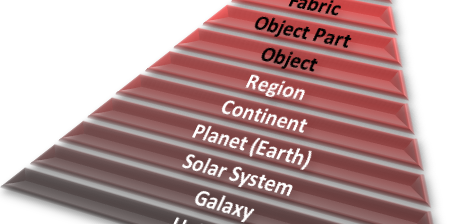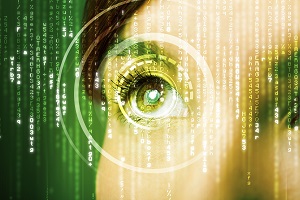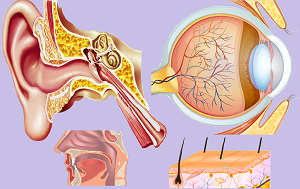Category Archives: Perception
13 Mar Probability and Expectations

The sun is pretty likely to rise tomorrow – you can have confidence in that, but it is sometimes said that “there is no guarantee.” Scheduling meetings tomorrow based on the sunrise assumption is a safe bet, but there may be any number of other things that interfere with the meeting. Life is filled with […]
11 Mar Joe’s Theory of Everything

While my teachers explained that language is about nouns and verbs, I think language is about symbolically representing everything and communicating about anything to anyone. There are many ways to look at the milieu in which we live from the tiniest sub-atomic particle on up. One way is to look at the larger context of […]
08 Mar In the Middle of a Big Wide World

The guy on the previous post (Your Personal Bubble) represents your typical office worker who sees himself as part of a universal hierarchy or taxonomy, though not exactly where he’d rather be in the big wide world. Each moment, we each learn from our own vantage point. While we can learn about all physical things, from […]
05 Mar Decide on Fuzzy Logic

In this section of Understanding Context, we describe not just how people think, but how they use their thoughts to guide their actions. We are particularly concerned with how people integrate multiple ideas or constraints into their thinking and decision-making processes, then put those decisions into action. It is sometimes said that the difference between information […]
04 Mar Gnosticism, Mysticism and Hard Knowledge

Neural Network science describes oft rejected explicit knowledge in neurons as “gnostic cells” or “gramma cells” suggesting one neuron knows about gramma. Not all scientists agree with associationist theories that explain learning in the context of things that pre-exist in memory. In fact, an entire school of thought flatly rejects explicit representations that form the core […]
03 Mar Images in Thinking

More or Less Remembering Memory is a subjective thing. Will we ever be able to teach a computer what is memorable in art, music, literature or cinema? A great illustration of memory’s subjectivity is the song from Gigi entitled, “Ah, yes, I remember it well.” In the song’s lyrics, a woman and a man recount […]
28 Feb Sense-Perception and Memory

I Recall… Since we have been discussing learning in the past few posts, it seems appropriate to talk about memory here as well. Of course, we are talking about human memory, but computers can remember quite well, too. In fact memory is one of the few areas where it is universally agreed that computers are […]







